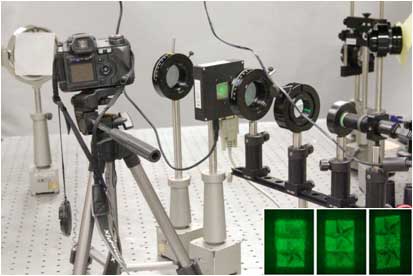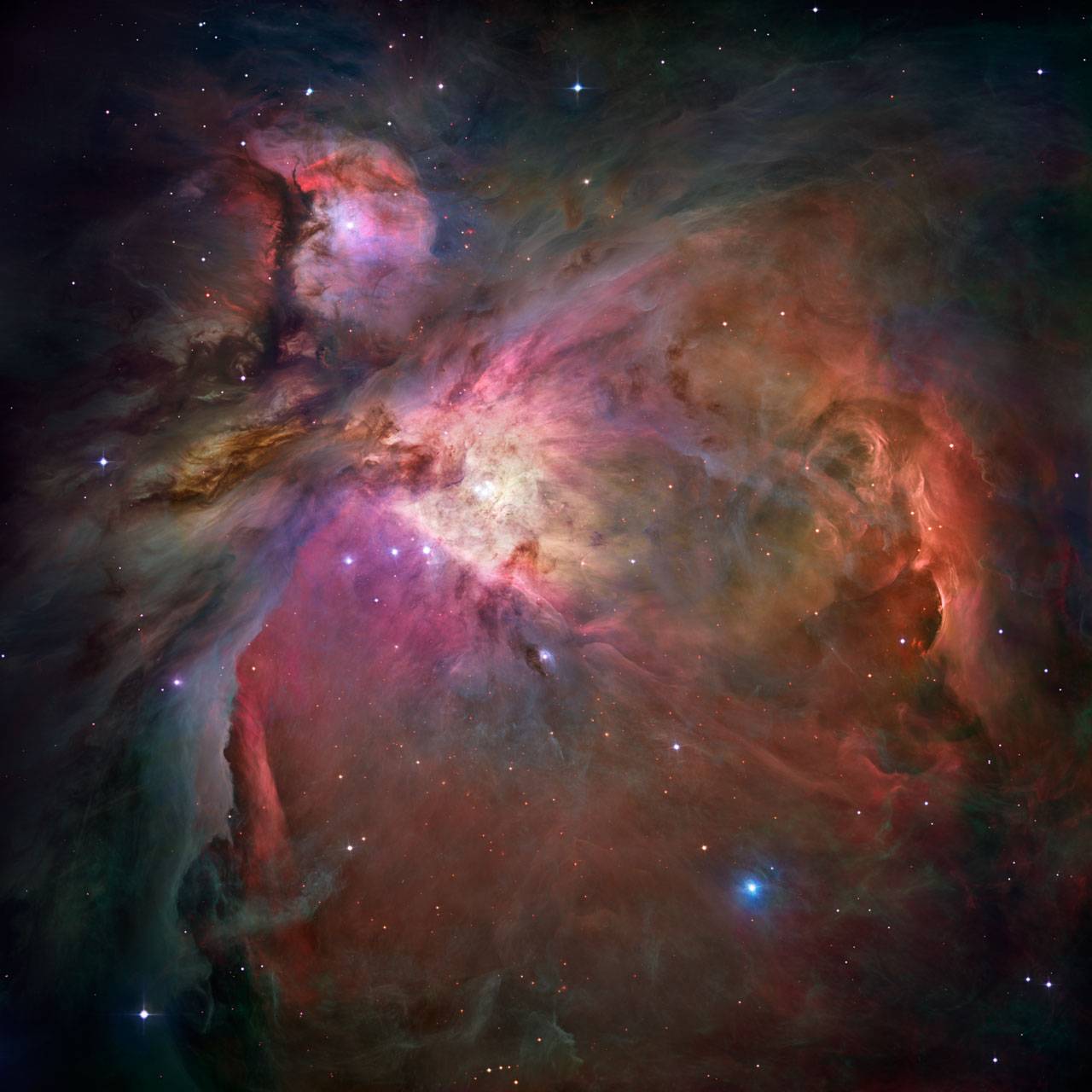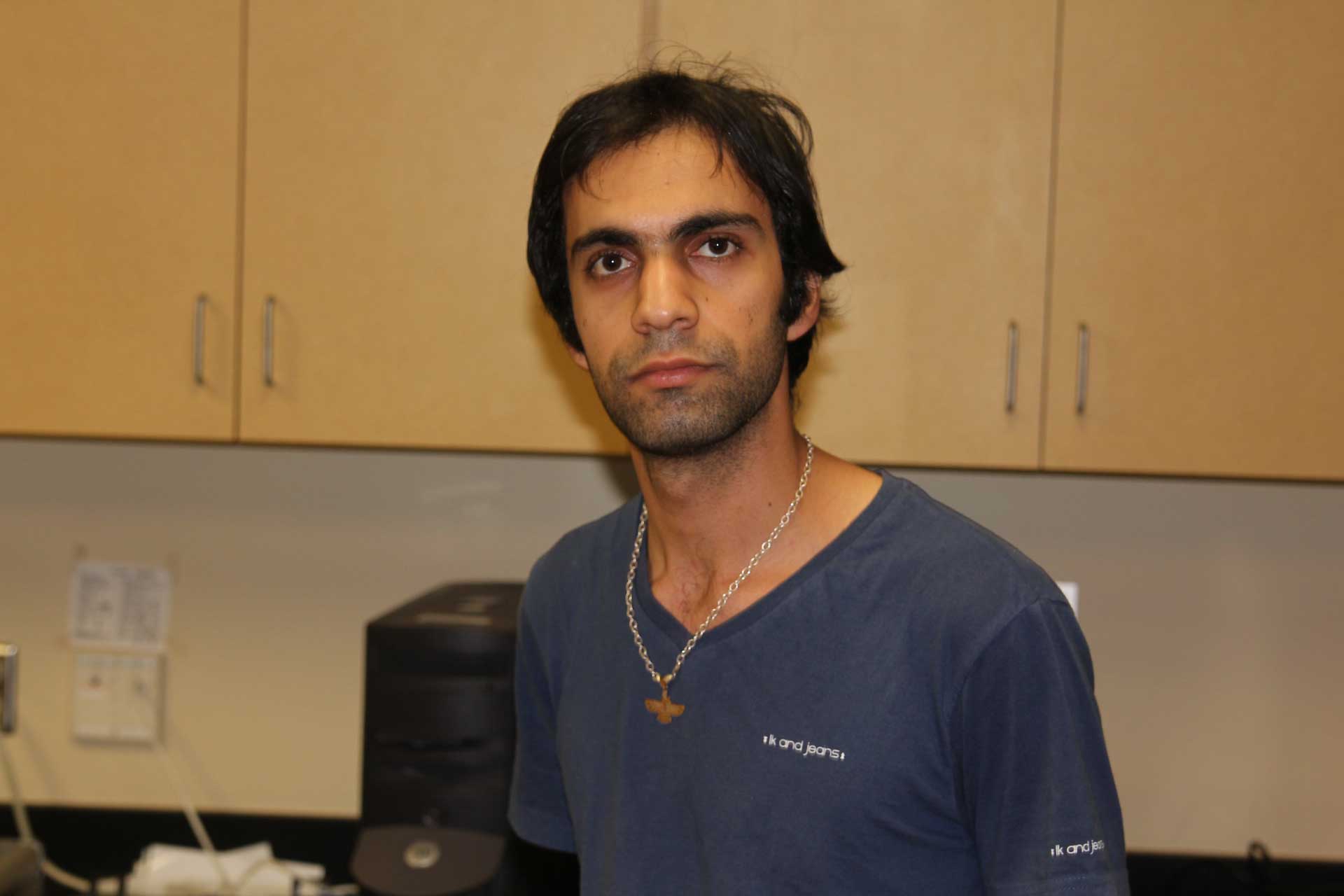Javad Gatabi's project page
 |
Development of an Exposure Tool for Lithography on Tilted and Curved Surfaces Using a Spatial Light Modulator. |
|
Javad Gatabi
Texas State University at San Marcos, Department of Physics, RFM 2225, 601 University Drive, San Marcos, TX78666.
|
This thesis project is on research to develop a new laser lithography exposure tool for use on non-flat substrates. Such a tool does currently not exist as commercial equipment used in the electronic industry uses high numerical aperture (NA) lenses to create patterns with critical dimensions down to 22 nm on very flat substrates (+/- 100 nm). The ability to pattern thin films on top of curved substrates with large topography differences allows for the development of new products and devices: it enable the integration of high density integrated electronics on non planar samples such as those created by integrated optical, micromechanical, and micromagnetic technologies, resulting in the realization of smart sensors and actuators. The tool also opens up new opportunities in materials characterization: the ability to place electric contacts on a 20 micron single crystalline grain of a polycrystalline sample allows us to separate bulk and grain boundary contributions to the electric transport properties of polycrystalline materials. An existing Florod laser beam writer used for lithography on flat substrates is being modified on three different points to allow for the exposure of non-flat substrates: (1) The optical throughput of the system is being optimized to allow for real-time determination of the photoresist film thickness from the reflection spectrum of the sample; (2) A high resolution optical light pattern generator is being installed on the system and allows for the determination of the sample’s topography by measuring the point spread functions and the modulation transfer functions from the sample-microscopy system. The installed light pattern generator is based on a Kopin high resolution amplitude spatial light modulator (1.5 micron resolution on the sample) and a LED light source; (3) A Holoeye phase only spatial light modulator (SLM) is being installed on the system to allow for imaging on tilted and curved substrates. Three different beam shaping methods are being investigated: (1) implementation of a single lens or multi-lens array on the SLM to allow for electronic focus control across a curved or tilted sample. The controllable focus range is up to 16 mm for the Pluto modulator and up to 0.7 mm for the LC2002 modulator. For large single SLM lenses the system is limited by aberrations caused by quantization, pixellation, and curvature of the modulator. Implementation of an SLM multilens array whose lenses have different focal distances increases the depth of field at the expense of a larger diffraction limited spot size; (2) implementation of a tilted lens function in the SLM allows for imaging on tilted samples. Preliminary experiments however show that the imaging quality is limited when using the SLM lens in combination with a real object; (3) implementation of the Gerchberg-Saxton algorithm to calculate the SLM optical field required to generate a certain intensity pattern on a tilted sample. The classical Gerchberg Saxton algorithm that was developed for Fraunhofer diffraction is adapted for finite projection distances and tilted samples. The algorithm appears to be stable and converging for the tested patterns and shows a light focussing improvement with respect to the classical algorithm. Presentations and Publications: Javad graduated in August 2013 and is currently working for R-water, a startup in San Marcos. |
|

